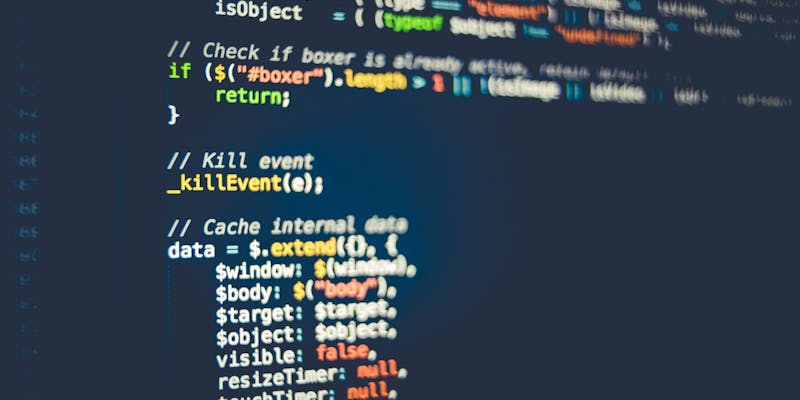In the digital era where cyberspace is as vital as territorial boundaries, global law enforcement is intensely focused on cybersecurity. The increasing sophistication of cybercrime requires international cooperation to combat these high-tech criminals effectively. The case of Mark Sokolovsky, a Ukrainian national extradited to the U.S., illustrates the complex nature of cyber threats and the determination of legal authorities to confront them. This relentless pursuit to secure cyberspace and prosecute cybercriminals demonstrates a firm commitment to preserving digital security worldwide. It underscores the importance of international collaboration in facing the interconnected threats within the digital landscape and the necessity of a unified enforcement approach to deter cybercrime.
The Raccoon Infostealer—A Case Study in Cybercrime
The Raccoon Infostealer malware represents the significant risks and complexities faced by both individuals and organizations. This malware succeeded in obtaining vast amounts of sensitive information from millions of victims with its seemingly unsophisticated payload. The triumphant apprehension of Sokolovsky and the subsequent dismantling of the Raccoon Infostealer operation were the results of exceptional international law enforcement teamwork. The combined efforts of the FBI, Italian, and Dutch teams, powered by advanced cyberforensics, are crucial in tracking the elusive digital traces left by cybercriminals.
Sokolovsky’s capture is proof of the relentless efforts by global teams to assemble complex digital evidence and overcome the anonymity favored by cybercriminals. These continual efforts are imperative in a landscape peppered with intricate cyber threats. They reflect an increased determination by agencies worldwide to evolve and combat contemporary cybercrime techniques.
Cybersecurity Legal Landscape and International Cooperation
Understanding international law’s complexities is fundamental in the fight against cybercrime. Mark Sokolovsky’s extradition from the Netherlands highlights the effectiveness of global legal frameworks. It points to the critical need for flexible laws that can overcome the jurisdictional boundaries typically exploited by cybercriminals. The case exemplifies how extradition treaties and mutual legal assistance agreements form a strong defense against boundary-defying cybercriminal activities.
This collective effort extends beyond high-profile extraditions to daily operations where intelligence and strategies are shared between agencies. Cross-border collaboration serves as an antidote to cyber threats’ borderless nature, facilitating a more coordinated and successful crackdown. The intricate nature of these international operations, with their inherent challenges and strengths, is increasingly important in cybersecurity’s legal discourse.
The Business of Malware-as-a-Service (MaaS)
The Raccoon Infostealer incident also highlights the growing Malware-as-a-Service (MaaS) economy. This business model, similar to legitimate Software as a Service (SaaS) offerings, provides easy access for cybercriminals to rent sophisticated tools. With a subscription fee of around $200 per month payable in cryptocurrency, individuals could utilize the Raccoon Infostealer’s capabilities. The MaaS financial model emphasizes the challenge of tracing financial transactions, often obscured through the use of digital currencies.
By examining cybercrime’s economic aspects through a MaaS perspective, we gain insight into the distribution and profitability of malware. As law enforcement and cybersecurity experts unravel these criminal business practices, actions to disrupt and dismantle such enterprises intensify. Tackling the mechanisms behind MaaS is becoming increasingly vital as these services gain more mainstream traction.
Impact and Scale of Cybercrime Threats
The extensive impact of the Raccoon Infostealer, as orchestrated by Sokolovsky, reveals the magnitude of cybercrime threats. The uncovering of over 50 million compromised credentials is a stark indicator of the potential damage from identity theft and financial fraud. It is not only the data breach that is alarming but also the possible misuse that can have severe repercussions on individuals’ lives.
Recognizing the scale of cybercrime underscores the need for prompt, comprehensive responses to assist victims. Initiatives like the FBI’s Victim Assistance website indicate progress in providing transparency and aid for those affected by cyber incidents. A holistic approach to addressing cybercrime is crucial, emphasizing both preemptive measures and post-incident support.
The Evolving Role of Law Enforcement in Cybersecurity
The fight against cybercrime extends beyond individual cases like that of Mark Sokolovsky, revealing the complex and dynamic strategies of law enforcement. An analysis of various cyber incidents and the response from authorities outlines common approaches and emerging tactics to address cyber threats. Industry experts echo the necessity for ongoing adjustment and global cooperation.
Law enforcement’s evolving role reflects an understanding that cybersecurity is a critical aspect of both national and international security frameworks. By examining these developments and the implemented safeguards, it is evident there is a heightened effort to proactively mitigate cyber risks and preserve confidence in our global digital infrastructure. The commitment to protecting the virtual world is unwavering, as law enforcement tirelessly works to ensure cybersecurity in our interconnected world.

